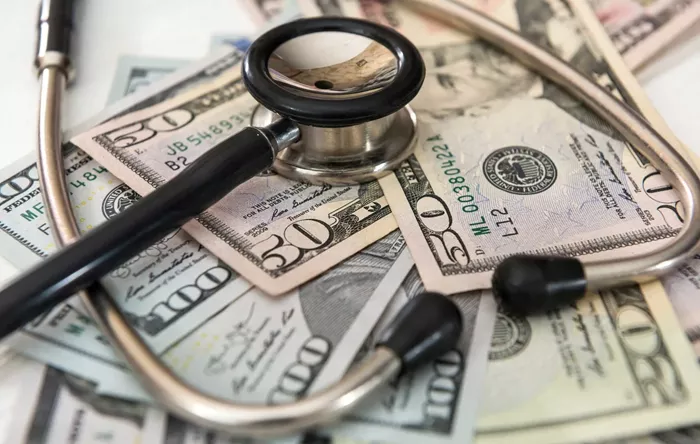A recent survey conducted by the nonprofit Missouri Foundation for Health has unveiled alarming statistics regarding medical debt in the state, revealing that nearly 40% of Missouri adults currently owe money to healthcare providers. The findings highlight the widespread financial strain caused by medical expenses, affecting individuals and families across the region.
According to the report published on Tuesday, two out of five adults in Missouri have outstanding medical bills, which stem from a variety of services, including lab tests, doctor visits, emergency care, and dental treatment. Notably, one in ten residents carries medical debt exceeding $5,000.
The financial repercussions of medical debt are significant, leading many to curtail spending on essential needs, deplete savings, and incur additional debt, such as increased credit card balances. “When people struggle to access affordable health care, the effects ripple through our economy,” said Sheldon Weisgrau, vice president of Health Policy and Advocacy at the foundation. He emphasized that the issue transcends health concerns, impacting financial stability and workforce productivity.
The foundation commissioned the survey last spring, gathering data from over 2,000 adults through the research firm SSRS. The results indicate that Hispanic and Black residents are disproportionately affected by medical debt compared to their white counterparts. Additionally, individuals in rural areas and those with disabilities are more likely to face current or recent medical financial burdens.
Remarkably, half of Missouri adults have incurred medical debt at some point in the last five years. Among these, 78% were under 65 and had health insurance when they received care that led to debt. One primary factor contributing to this trend is the high cost of deductibles, which represent out-of-pocket expenses that must be met before insurance coverage kicks in. In 2023, the average family deductible in Missouri was $3,783, while the average for single coverage stood at $2,340.
The survey further revealed that four in ten Missourians lack the funds to cover an unexpected $500 bill, underscoring the financial vulnerability many face. Samantha Schrage Bunk, health policy strategist at the foundation, described the burden of medical debt as “financially devastating” and “demoralizing” for families.
Nationally, the issue mirrors findings from a 2022 KFF survey, which identified states with high rates of medical debt as those that have not expanded Medicaid. Missouri implemented Medicaid expansion in October 2021, yet challenges persist.
The survey also highlighted increasing awareness and legislative interest surrounding medical debt relief, with at least 17 states proposing related policies this year. However, Missouri has not followed suit. Missourians overwhelmingly support measures that promote price transparency, cap hospital charges, and establish consistent criteria for financial assistance programs.
“The message from Missourians is clear—they want meaningful policy changes to make healthcare more affordable and accessible,” Schrage Bunk stated. She stressed the urgent need for government and healthcare systems to respond to these concerns.
Personal testimonies from participants illustrate the dire consequences of medical debt, with individuals reporting lifelong financial burdens, bankruptcy, and diminished credit scores affecting housing and employment prospects. One interviewee poignantly asked, “How can you afford $2,000 for an ambulance ride?”—highlighting the pervasive struggle facing many in Missouri as they navigate healthcare costs.
Related topics:


